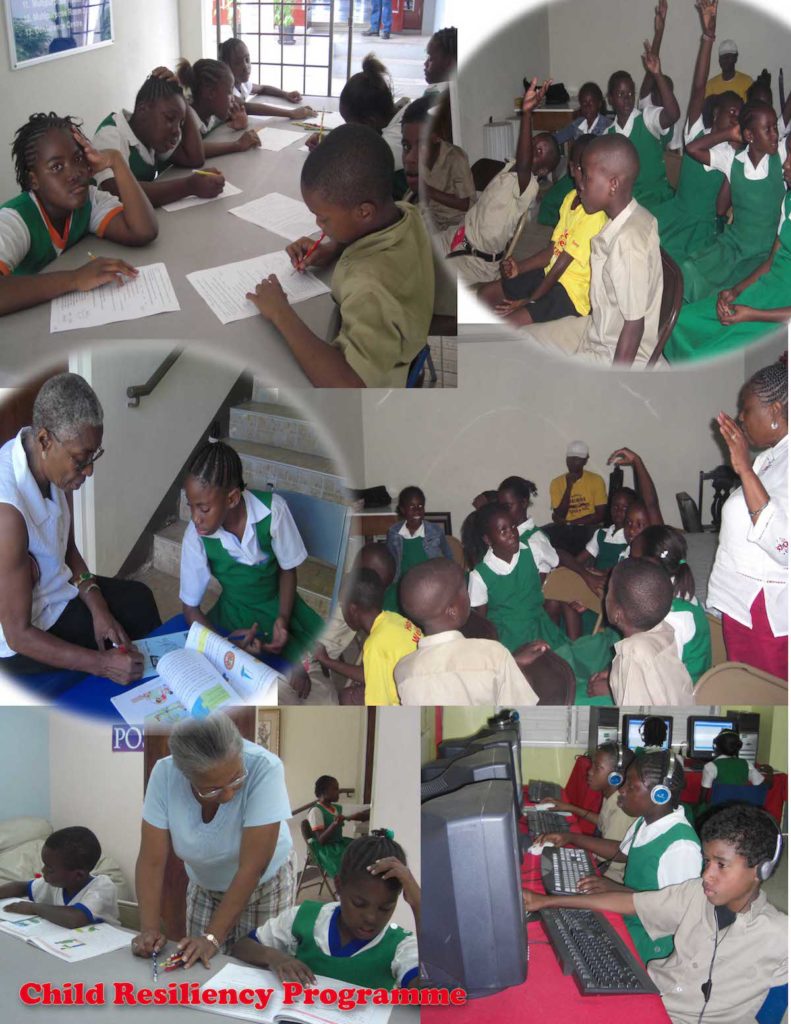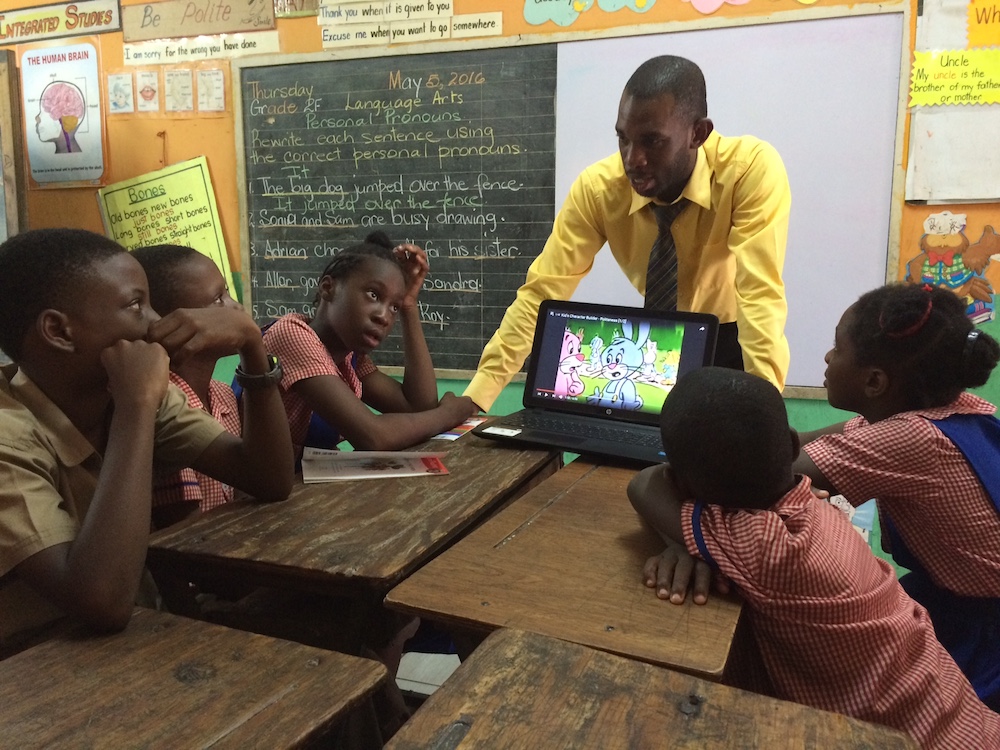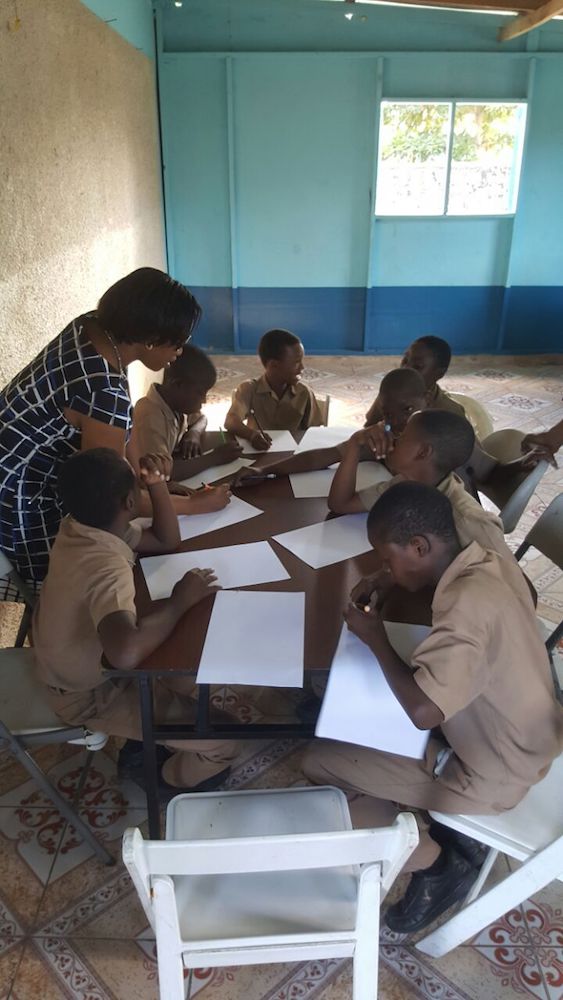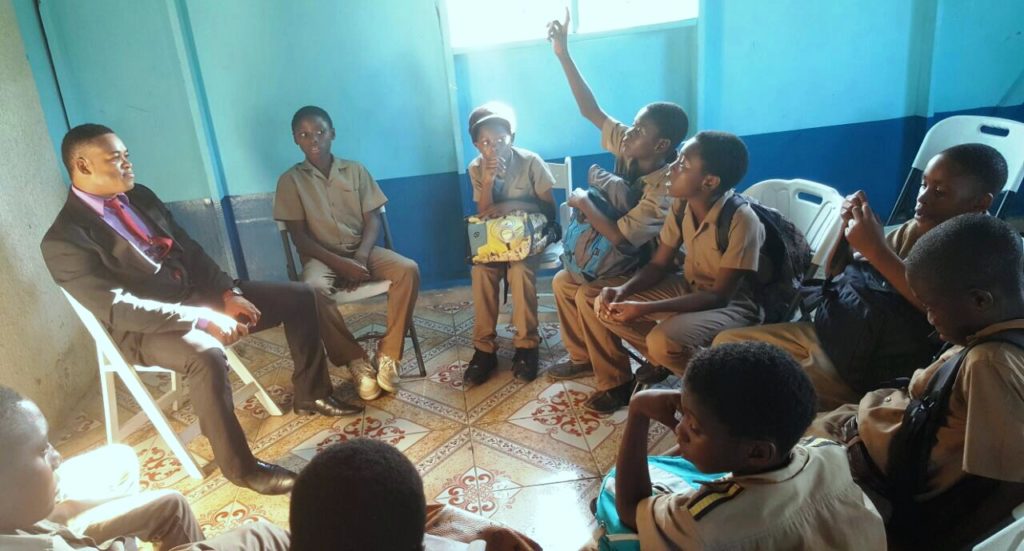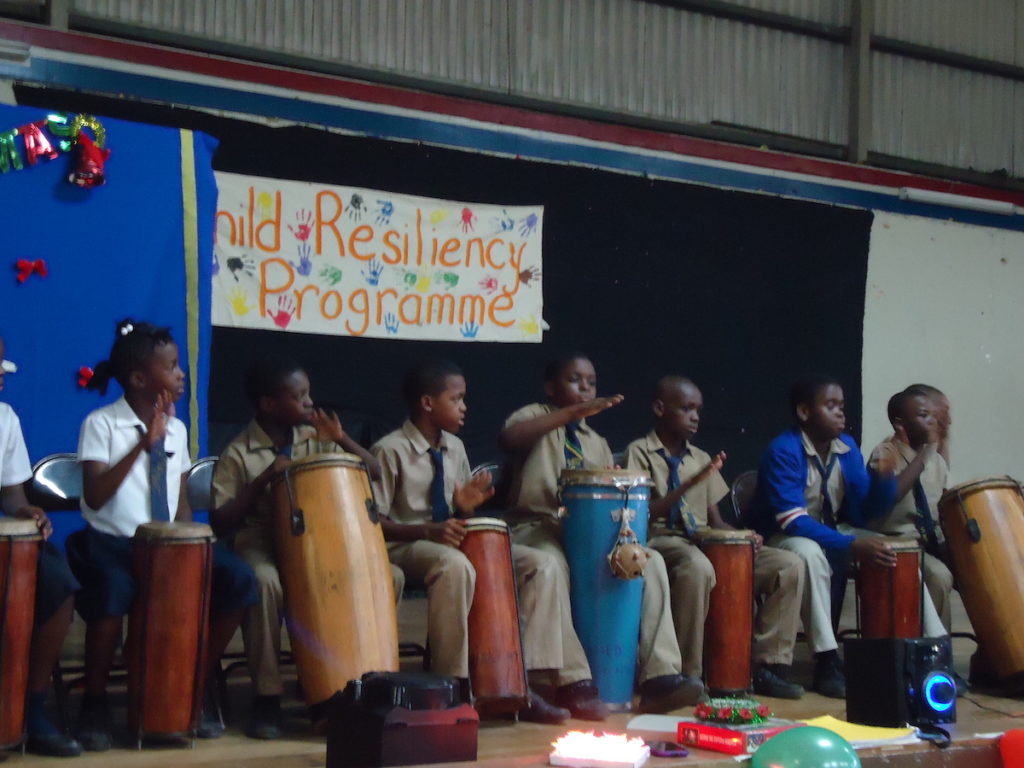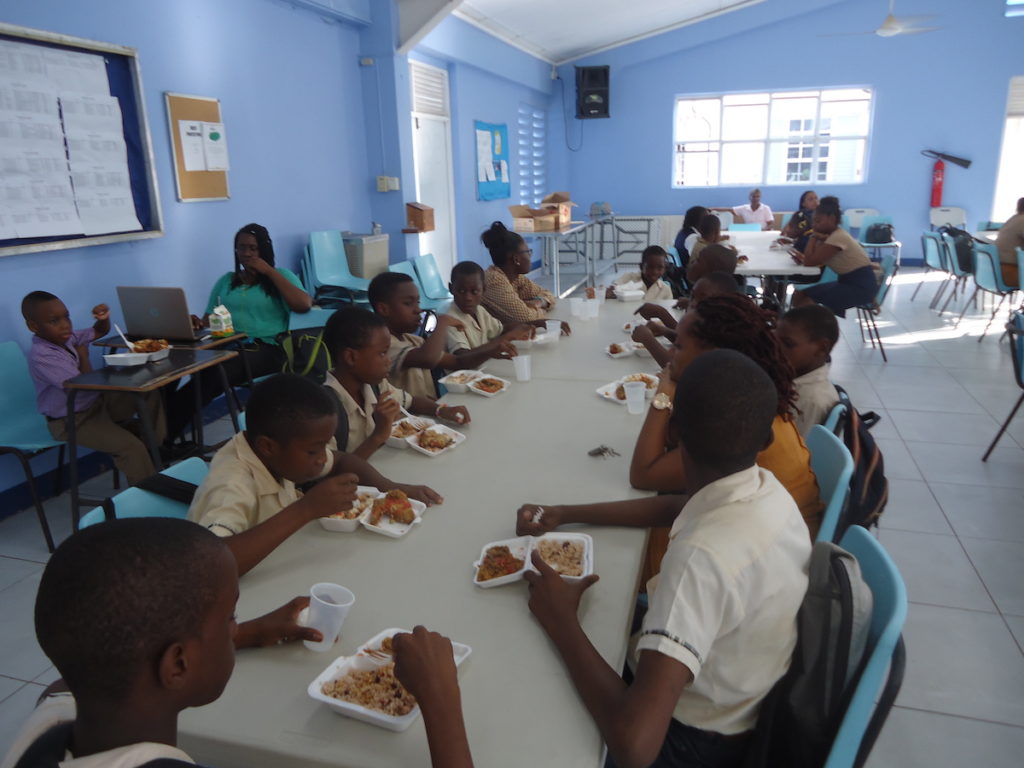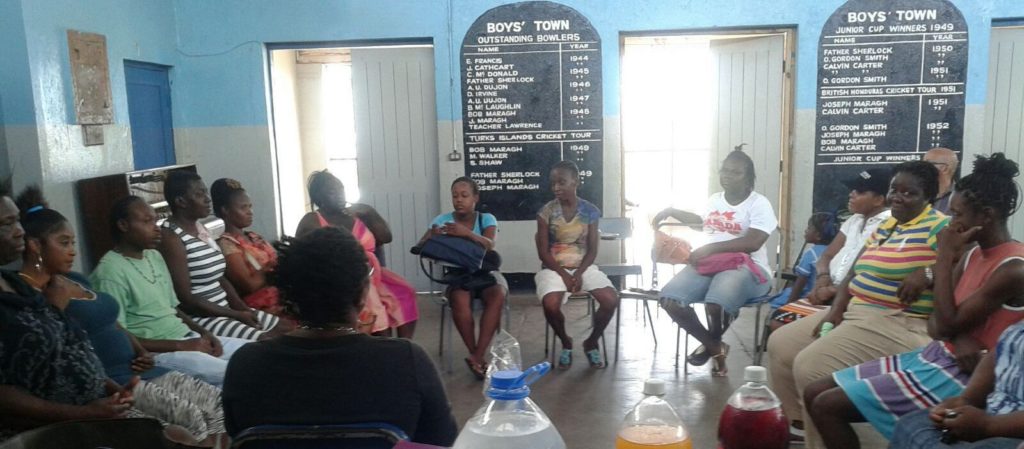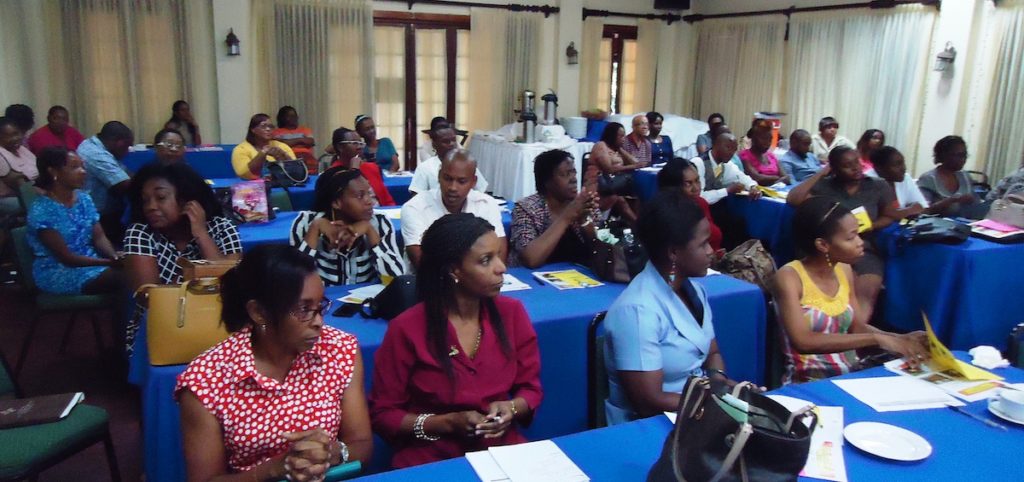Background
Children who are unable to read effectively have been shown to be more likely to engage in high risk behaviours including increased fighting, aggressiveness and in appropriate behaviour.
objectives
- The overall aim is to help all children in attendance become functionally literate through small group teaching with the support of a teacher/ volunteer.
- To expand and motivate those already reading at functional grade level to achieve a high academic standard.
- To assist each referred child to pass their literacy achievement tests.
- To foster a love for reading and learning.
methodology
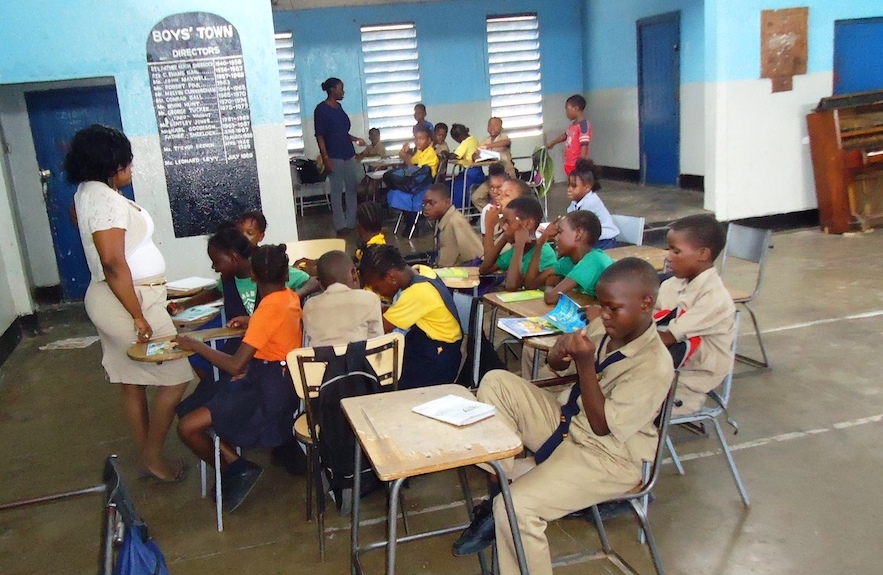
Chalk and Talk
The Child Resiliency Programme (CRP) has partnered with The Learning Network to give support to the academic arm. This partnership began in July 2008 when the Child Resiliency Programme of Hope United Church donated 35 of 55 computers which were donated to them by the PADF to facilitate the development of their own and other computer learning sites. A mini computer lab has been set up and networked to be used by the referred children. On March 1st 2009, Learning Networks conducted training with 2 members of the CRP staff in the use of the auto skills programme.
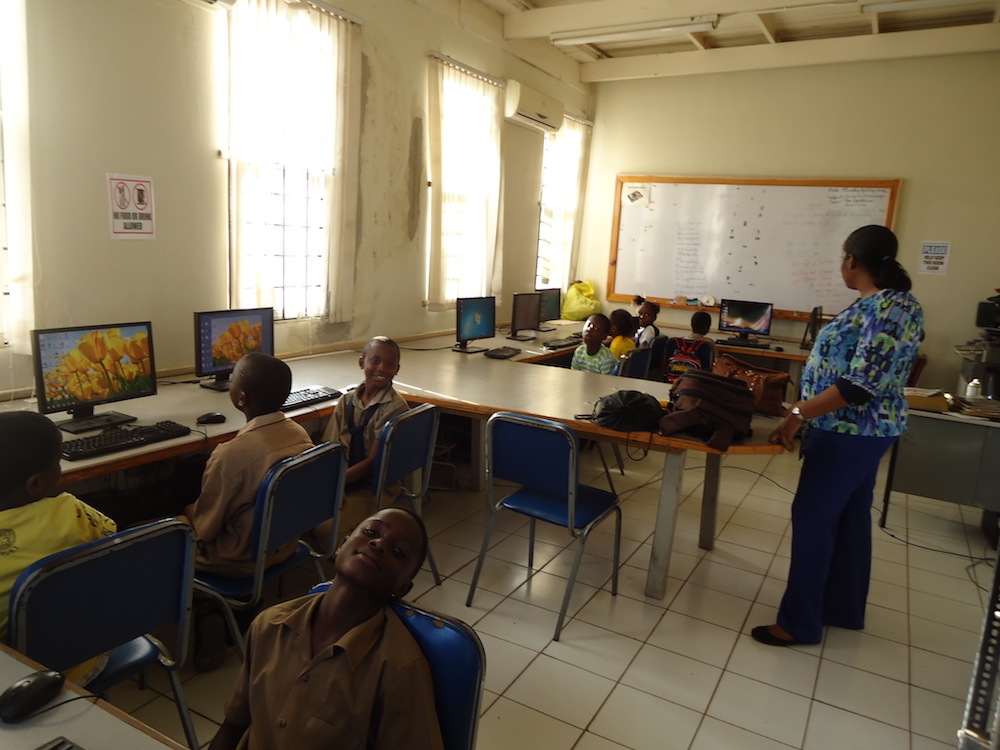
Computer based
The Learning Network Programme is managed by the Violence Prevention Alliance and the Healthy Lifestyle Project of the Ministry of Health. The first step in the academic support programme whether “chalk and talk” methodology or the Auto Skills programme is the assessment of each student’s ability relative to his grade level and prescribing of his/her appropriate individualized training programme. Each student is permitted to progress at his/her own pace. The second step is the monitoring of each student’s progress which includes the identification of recurrent errors, response time and total time spent on assignments.
